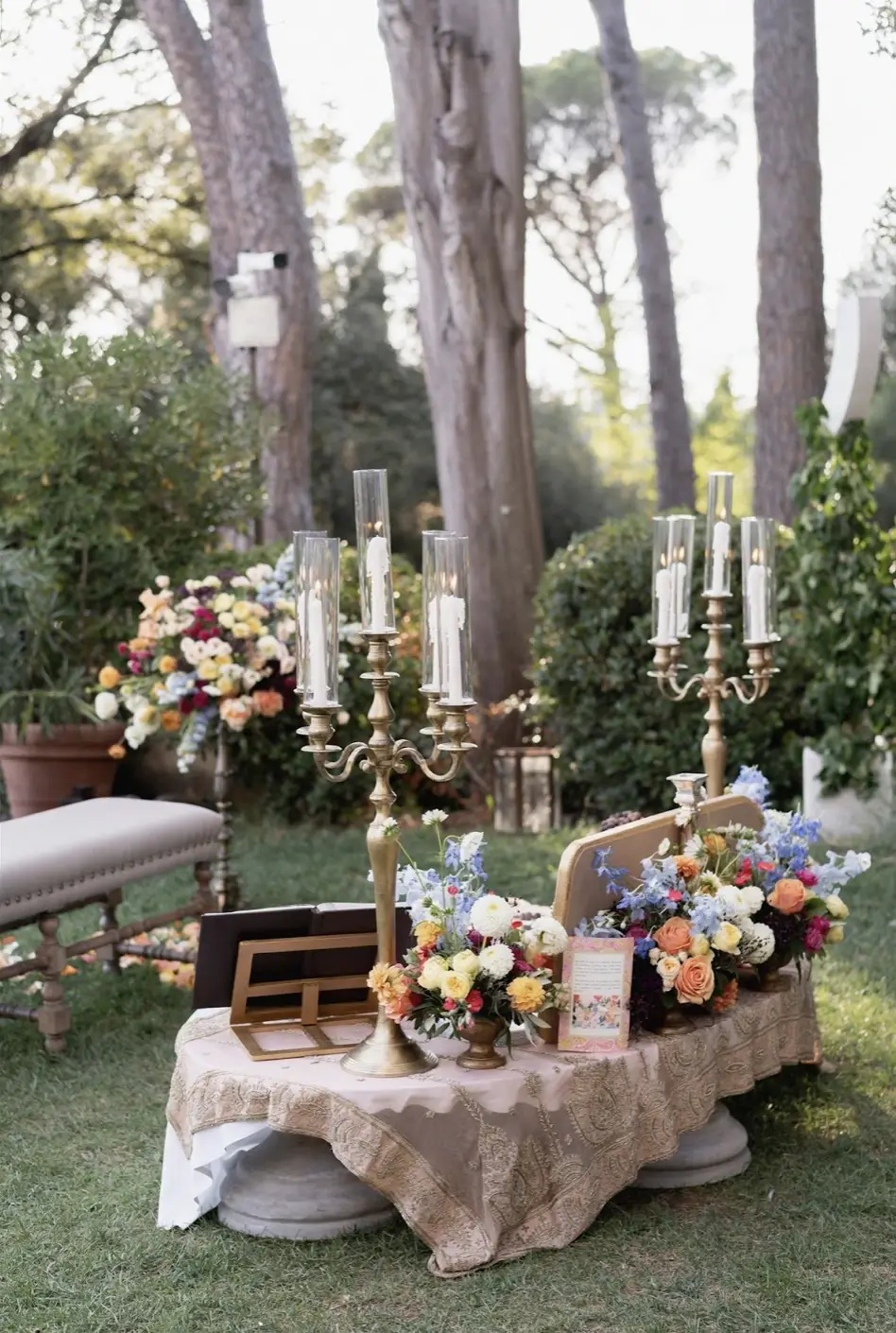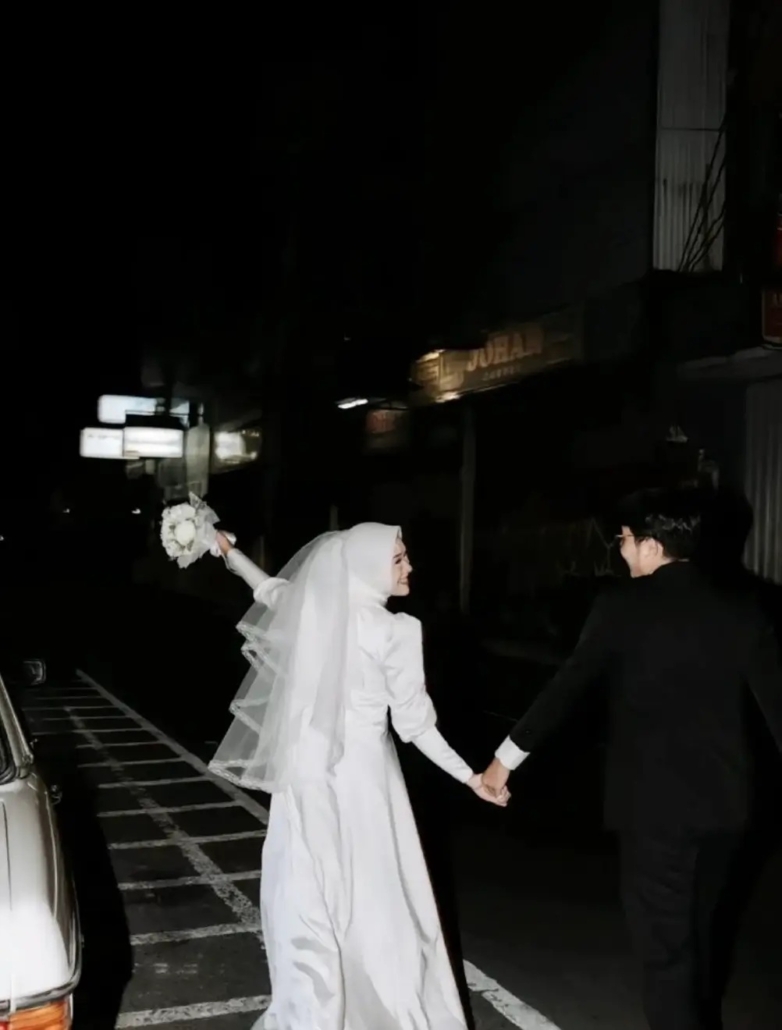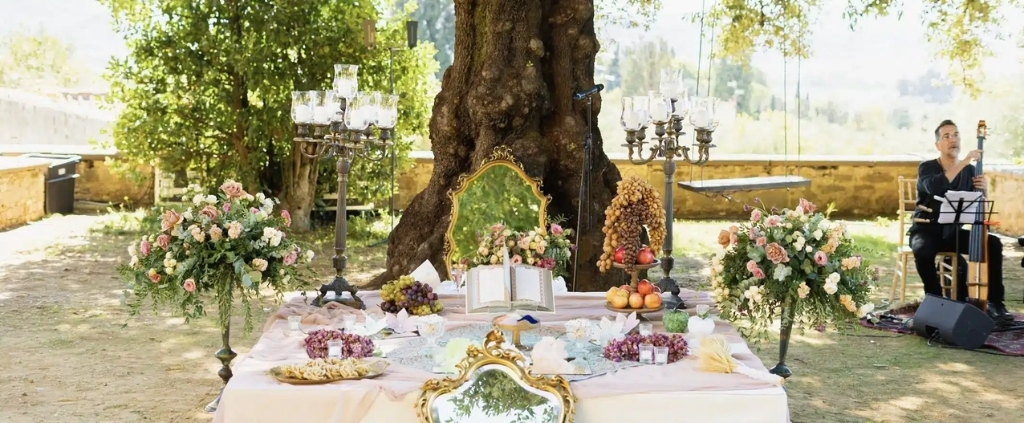How to Easily Plan Your Luxury Muslim Wedding in Italy
Imagine the soft glow of a Tuscan sunset illuminating ancient stone walls as the melodic call to prayer echoes across rolling vineyards. This enchanting scene sets the stage for a truly unique celebration: a Muslim wedding in the heart of Italy.
As more couples seek to blend their faith with the romance of a destination wedding, Italy has emerged as an alluring choice.
Its rich history, breathtaking landscapes, and renowned hospitality offer a captivating backdrop for Islamic nuptials. Yet, this beautiful fusion of cultures presents both exciting opportunities and distinct challenges.
From finding halal cuisine in the land of prosciutto to sourcing venues that accommodate gender separation, planning such an event requires creativity, cultural sensitivity, and meticulous attention to detail.
Understanding Islamic Wedding Traditions
Muslim weddings center around key elements that define their spiritual and cultural significance. The Nikah, a sacred contract signing, is the union’s cornerstone. This ceremony, typically officiated by an Imam, involves the couple’s consent to marriage and the exchange of vows.
In Italy, couples might choose to conduct the Nikah in a picturesque garden or a historic villa, blending Islamic tradition with Italian romance.
Following the Nikah, the Walima celebrates the consummation of marriage. This feast, often held the day after the Nikah, allows the couple to share their joy with a broader circle of family and friends. In an Italian setting, the Walima could transform into a lavish outdoor banquet featuring a harmonious blend of Middle Eastern and Italian cuisines.
Modesty is crucial in these events, and gender separation is often observed. This practice reflects deep-rooted cultural values and religious beliefs. In Italy, this might involve choosing venues with separate wings or rooms for men and women or creatively using outdoor spaces to maintain privacy.
Dietary requirements further shape the celebration. Muslim wedding require halal food, ensuring all meat served comes from animals slaughtered according to Islamic law.
Additionally, alcoholic beverages are excluded from the festivities, presenting a unique challenge in a country renowned for its wine culture.

Challenges Of Planning A Muslim Wedding In Italy
Venue Challenges
Combining Islamic traditions with Italian venues presents several hurdles.
Some Muslim traditions dictate that genders should be separate for some of the events. So, finding appropriate spaces for gender separation can prove particularly challenging in a country where mixed gatherings are the norm.
This might involve renting larger villas or estates that can accommodate separate areas without compromising the atmosphere. Having an Italian wedding planner on your side can help tremendously.
Food Challenges
Another challenge when planning a Muslim wedding in Italy is sourcing halal catering options.
This is because Italian cuisine is famous for its pork and wine-based dishes. Couples might need to work with specialized caterers or educate local chefs on halal requirements, ensuring a menu that respects both Italian culinary traditions and Islamic dietary laws.
The VB-Events team is highly experienced in arranging Muslim-style weddings, and will give the utmost attention to each of these important details.
Local Regulations
Navigating local regulations while maintaining adherence to religious traditions demands a delicate balance.
For example, obtaining permits for outdoor ceremonies or ensuring venues can accommodate prayer times might require extra negotiation and planning.
Sensitivity
Moreover, managing cultural differences between Italian and Muslim customs requires sensitivity and clear communication.
This might involve educating Italian vendors about the significance of certain Islamic traditions or preparing non-Muslim guests for what to expect at the wedding.
More info about your dream Muslim
Wedding in Italy?
Tips For Venue Selection
Researching Muslim-friendly venues in Italy forms a crucial first step. Couples should look for locations with experience hosting multicultural events or express willingness to accommodate specific religious requirements.
Some Italian venues, particularly those accustomed to hosting international events, might already have experience with Muslim weddings. These locations can offer valuable insights and may have solutions for common challenges, such as providing prayer rugs or orientating spaces towards Mecca.
Catering And Cuisine
Locating halal caterers in Italy may seem daunting, but it is not impossible. Some couples bring specialized caterers from larger cities or neighboring countries with significant Muslim populations.
Others work closely with Italian Wedding Planners (us!) to create halal versions of Italian classics, ensuring a menu that delights guests while adhering to dietary laws.
Incorporating Italian cuisine into halal menu options opens up a world of culinary creativity. Chefs might create seafood-based risottos, vegetarian versions of pasta dishes, or halal iterations of traditional meat courses. This fusion fully respects religious requirements and also celebrates Italy’s rich gastronomic heritage.
Non-alcoholic drink alternatives present another opportunity for innovation. Mixologists can craft sophisticated mocktails featuring local fruits, herbs, and Italian sodas.
Sparkling grape juices or alcohol-free versions of classic Italian drinks can provide elegant replacements for wine and spirits, allowing all guests to partake in toasts and celebrations.
Logistics And Planning
Hiring a local wedding planner familiar with Muslim traditions and Italian customs proves invaluable. These professionals will help you navigate the complexities of obtaining the necessary legal documents for a Muslim wedding in Italy, which can be intricate and time-consuming.
Couples must research the requirements for a legally recognized Islamic marriage in Italy. This might involve civil ceremonies in addition to the religious Nikah, requiring coordination with local authorities and potentially an imam recognized by the Italian state.
The transport of guests, especially for larger weddings, requires careful coordination. We are able to organise smaller vehicles or shuttle services from central locations in historic Italian cities with narrow streets, all for full ease of movement for all participants.
And of course accommodation: providing accommodation options for the extended family and guests that meet different needs and budgets ensures the comfort of all participants.
We can range from luxury hotels for the immediate family to cheaper options for other guests, all within a reasonable distance from the wedding venue.
Incorporating Italian Elements
Blending Italian and Islamic aesthetics in decor offers a unique chance for creative expression. Couples might incorporate geometric patterns reminiscent of both cultures or utilize calligraphy in both Arabic and Italian to create visually stunning environments.
An example? Table settings could feature delicate Italian ceramics alongside Middle Eastern-inspired patterns.
We absolutely have to talk about one of the elements you love most in a wedding: the photo shoot.
Italy’s picturesque landscapes provide unparalleled backdrops for wedding photography. From sun-drenched Tuscan hills to the romantic canals of Venice, couples can capture timeless memories that reflect the beauty of their surroundings and union.
Photography sessions can be scheduled to accommodate prayer times and modesty requirements while still taking advantage of the golden Italian light.
Some Italian wedding traditions align well with Islamic values and can be thoughtfully incorporated. For example, the emphasis on family involvement resonates in both cultures.
Finally, the Italian tradition of confetti (sugar-coated almonds given as favors) can be adapted to align with the Islamic custom of distributing sweet treats to celebrate the union.
Dressing for the occasion

Brides might choose gowns with long sleeves and high necklines, incorporating luxurious Italian fabrics or lace. Hijabs and head coverings that complement wedding gowns have also expanded significantly.
From intricate lace-trimmed styles to sleek silk wraps, these pieces can seamlessly integrate into bridal looks that honor modesty and high fashion.
Some brides opt for detachable overskirts or capes that can be removed for the women-only portion of the celebration, offering versatility in their bridal look.
Grooms can blend traditional Islamic wear with Italian tailoring, perhaps choosing a well-cut suit paired with a subtle kufi cap or incorporating elements of both cultures in their attire.
As the wedding planner, we will provide any suggestions on dress code to the guests, to ensure that all participants feel comfortable and are dressed appropriately, according to Islamic principles and their personal tastes.
Organising a Muslim wedding in Italy intertwines two rich cultural traditions, creating a unique and memorable celebration.
Although there are challenges, from venue selection to dietary considerations, couples who rely on our wedding agency will be assured of creating an event that truly represents their love story in the familiar, religious style that belongs to them.



